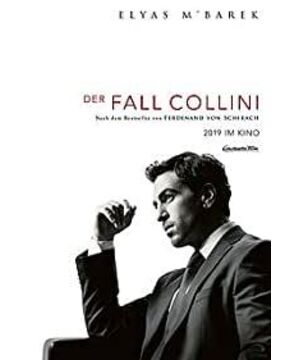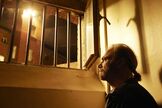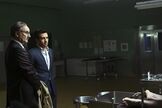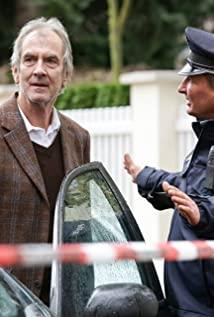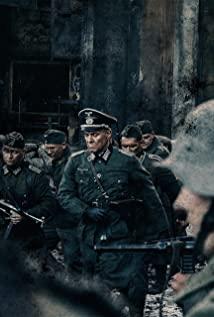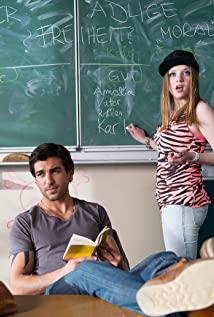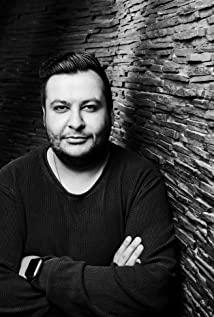The charm of court films is that they provide an intellectual pleasure. This kind of pleasure is different from external sensory stimuli such as images and sounds, and it directly affects the mind. It allows us to re-examine some major issues that have become conclusive or ignore the long-term, and trigger new thinking, so that we have a more complex understanding of human nature, morality, fairness, justice and other concepts.
The process of watching "Not Guilty Murder: The Corinne Case" is just such a speculative journey.
The film is based on real events and tells a homicide that occurred in 2001.
In the presidential suite of a luxury hotel in Berlin, the suspect Corinne visited the house pretending to be a reporter and shot and killed Hans Meyer, the owner of the MMF Group. Evidence shows that Corinne fired a total of three shots, all of which hit the deceased’s brain. The deceased was kneeling before his death. After being shot and fell to the ground, Corinne fired two shots into the back of his head and stepped on the deceased's face, making him completely unrecognizable. Such cruel methods have long gone beyond ordinary killings.
After the assault, Corinne did not run away, but chose to surrender and confessed to the crime. In other words, this is an iron case with clear facts. The only thing that is puzzling is, what is the motive of the murderer? This is also the biggest suspense throughout the film. In the end, it is precisely through the dismantling of this suspense that the film takes us back decades ago, tracing back a bitter history, and unveiling a dark scene in German judicial history.
First of all, this movie is very attractive in terms of plot.
The film takes the defense lawyer Laining as the protagonist and goes deep into the case. Lenin had just obtained his lawyer's license and was appointed by the court to defend Corinne. However, in contact with the latter, no matter how he asked and guided him, Corinne remained silent. This old man over sixty years of age frowned and lowered his head, acting as if he didn't need a defense at all.
In desperation, Laining had to find the truth on his own. As a result, the film turned on the "Detective Mode". Following the clues, Laining found out the hidden history of the deceased step by step, as well as the unknown past of Colinni... This process has undergone several reversals, and the truth can't help but Make everyone stunned.
More important than the process of leading to the truth is that in the trial after trial, the film shows the conflicts between law and emotion, history, and ethics in an orderly manner, which in turn allows us to reflect on the standard of "justice".
First of all, when the law and personal emotions conflict, how to deal with it?
This was the first problem Lenin encountered.
When he took the case in a daze, he discovered that the case was far more complicated than he thought. There is a triple emotional disorder in front of him.
First, the deceased Meyer was no one else, but the grandfather of Lenin's childhood friend. When she was in school, Leining often stayed at Meyer's house, and shared his family with Meyer.
Second, the plaintiff who appeared in the court was Meyer's granddaughter Joanna. Lenin and her childhood sweethearts were very close to each other, and he had to face the latter's reproachful gaze during the entire trial.
Third, Martin Ge, the plaintiff's lawyer who represented the Meyer family in court, is not only highly respected in the legal world, but also a respected teacher of Lening.
At the same time, facing the scrutiny of elders, lovers, and teachers, one can imagine how much pressure Laining is under.
He also wanted to give up for a while. He felt that he was unable to play the role of a defense lawyer regardless of his emotions, conscience or ability.
But in the end, Martinger's words woke him up.
Those remarks roughly meant that if you want to become a qualified lawyer, you cannot escape your emotions. Because no matter what kind of person you are facing, there may be places that make you feel uncomfortable. Maybe he brought back your tragic memories, maybe he reminded you of what happened to your relatives and friends, or even if you just had a bad impression of him, you felt that his nose was not good enough, and his eyes were not kind enough... But in the face of the lawyer's mission, it counts. what? In other words, isn't the meaning of the law to provide equal trials for every different person? If you want to be a lawyer, you must escape the quagmire of prejudice and learn to treat others equally.
It was inspired by these words that Lenin decided to challenge.
From here we also see a dark line buried in the film, namely the teacher-student battle between Martin Ge and Lening. Martine is undoubtedly a mentor to Lenin, although we don't know, he persuades Lenin to fight more out of encouragement, or he hopes the rookie will mess up the case. But in any case, Laining's final performance did not disappoint the teacher. In the face of the calm and sophisticated Martin Ge, Laining never relented. He was rigorous in logic and argued with reason, and finally staged a counterattack of "love my teacher and love the truth more".
This also embodies the film's legal view of transcending personal emotions from another aspect.
Next, when the law is mixed with historical factors, how to judge it?
Laining started with the murder weapon in this case-a rare Walter P38 pistol-and launched an investigation, penetrating the fog of history layer by layer. Back in 1944 during World War II, the German occupation of Italy. Two German soldiers were killed in a bombing planned by the guerrillas. German officers ordered revenge. They came to the village of Montecatini with ten lives. , Indiscriminately capture civilians, massacre. And the officer who ordered it was Hans Meyer when he was young.
As the past was turned out, the image of the deceased Meyer was reversed 360 degrees, from a kind and wise old man to a cruel executioner in an instant. And the murderer Corinne who reversed with him, it turned out that he was not a lunatic, but an avenger, because in the massacre that year, his father was one of the victims.
The scale of justice is quietly tilting, and all those present begin to rethink the nature of this murder.
The question also followed. Why did Corinne come to seek revenge after 56 years? In this long time, what has he experienced?
After a series of questions, the other side of the story was revealed. It turned out that as early as 1969, Corinne had prosecuted Meyer for war crimes, but the court finally dropped the prosecution after verification.
This fact has further aggravated the complexity of the entire case, and has linked up a chain of recourse about "justice": of course, one person kills another person is an inescapable guilt. But if he killed an executioner, a man who killed his father and an enemy, and a man who committed war crimes, how would he be judged? At the same time, the war crimes committed by Meyer are just our empathy judgments and have not been tried by law. How should we deal with this? What's more, war crimes are inherently special. For example, the law stipulates that under certain circumstances, killings for the purpose of deterrence are not considered crimes, provided that they do not involve harm to women and children. However, is mental injury considered as injury? Is killing a child's father in front of his father considered harm?
And, when the film took the final big reversal (what it was, I don't know what it is), we found that Meyer was not prosecuted that year not because the court found him innocent, but because there were other secrets. So the above question is further extended to: If the law itself is flawed, it helps Meyer escape punishment, and causes Corinney to have nowhere to appeal, and kills enemies in anger, how should we judge?
It is in this round of thinking constructed by layers of reversal that we are gradually approaching the core of the film, which is actually torturing the moral code of each of us.
Just as the film ends with an open ending, it actually leaves the judgement to the audience. How you view Corinne's crimes and judge him depends on how you view justice, how you treat history, and how you hope to achieve justice and how to protect everyone who is hurt and judged.
We are watching a movie, and the movie is watching us.
A good movie is like a mirror, reflecting the vast rifts and variegations of our inner world.
It never provides answers, only asks individual questions.
From this question, we can approach ourselves, examine ourselves, and become mature and generous in thinking.
The film "Innocent Murder: The Colliny Case" made me experience this journey again.
At this point in the writing, I think of another scene in the film.
At the end of the film, Lenin returned to Colinni’s hometown, Montecatini, Italy. A ball accidentally rolled down to his feet. He picked up the ball and threw it back. The child catching the ball was just a young child. Corinne. Accompanied by his father, Corinne was walking into the sun, and he looked back at Lenin, as if history and reality were facing each other.
I think Lenin must have an answer in his mind at this time.
He did not say that it was not important. The important thing is that everything he has experienced has made him look at the world differently.
Welcome to pay attention to my public account: Zi Ge said the movie
Only write different in-depth film reviews.
View more about The Collini Case reviews


